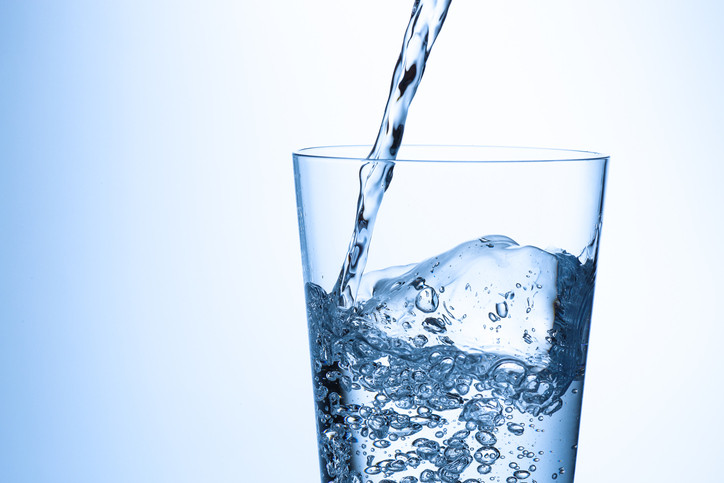
What is a PSA test and how is it used?

Blood sugar–friendly fruits if you have diabetes

Gratitude enhances health, brings happiness — and may even lengthen lives

Respiratory health harms often follow flooding: Taking these steps can help

Could tea tree oil help treat acne or athlete’s foot?

Hemoglobin A1c (HbA1c): What to know if you have diabetes or prediabetes or are at risk for these conditions

What could be causing your blurry vision?

Avocado nutrition: Health benefits and easy recipes

Swimming lessons save lives: What parents should know

Preventing and treating iliotibial (IT) band syndrome: Tips for pain-free movement
How much water should you drink?
There's no one-size-fits-all answer, as fluid needs vary among individuals.

How much water should you drink a day? Most people need about four to six cups of plain water each day. But it may be surprising to learn that water intake is an individualized number.
While the daily four-to-six cup rule is for generally healthy people, that amount differs based on how much water they take in from other beverages and food sources. Also, certain health conditions, medications, activity level, and ambient temperature influence total daily water intake.
Unfortunately, many of us aren't getting enough to drink, especially older adults. We'll help you understand how much water you need to drink in a day to stay healthy.
Benefits of drinking water
Water keeps every system in the body functioning properly. The Harvard Medical School Special Health Report 6-Week Plan for Health Eating notes that water has many important jobs, such as:
- carrying nutrients and oxygen to your cells
- flushing bacteria from your bladder
- aiding digestion
- preventing constipation
- normalizing blood pressure
- cushioning joints
- protecting organs and tissues
- regulating body temperature
- maintaining electrolyte (sodium) balance.
How much daily total water do you need?
For healthy individuals, the average daily water for men is about 15.5 cups and for women about 11.5 cups. That might mean you need only four to six cups of plain water, depending on other fluid sources such as coffee, tea, juice, fruits, and vegetables.
Other factors that might mean more plain water include:
- Activity level: If you're losing water through sweat because you're exercising, you should increase your water intake. Individuals participating in long stretches of physical activity, such as marathons, often need to replace both water and sodium losses.
- Outside temperatures: You should adjust your water level when the temperatures soar outside. In warmer temperatures, you might feel thirstier faster.
- Overall health and medications: It's possible to take in too much water if you have certain health conditions, such as thyroid disease or kidney, liver, or heart problems; or if you're taking medications that make you retain water, such as nonsteroidal anti-inflammatory drugs (NSAIDs), opiate pain medications, and some antidepressants.
- Age: Older people don't sense thirst as much as they did when they were younger. And that could be a problem if they're on a medication that may cause fluid loss, such as a diuretic.
How to calculate how much water to drink a day
As there's no one-size-fits-all answer and water intake is individualized, you should check with your doctor about the right amount for you.
If you don't drink enough water each day, you risk becoming dehydrated. Warning signs of dehydration include urine that's dark yellow in color, weakness, low blood pressure, dizziness, or confusion.
Fluids to keep you hydrated
Water is not your only choice when it comes to hydration. All beverages containing water contribute toward your daily needs. And some people even tout the benefits of milk for hydration.
And it's a myth that caffeinated beverages or those containing alcohol are dehydrating because they make you urinate. They do, but over the course of the day, the water from these beverages still leads to a net positive contribution to total fluid consumption.
Of course, there are many reasons why water is still the better choice. Remember, sugary drinks can lead to weight gain and inflammation, which can increase your risk for developing diseases such as diabetes. Too much caffeine can give you the jitters or keep you from sleeping. And alcohol intake should be limited to one drink per day for women, and one to two drinks per day for men.
Tips for avoiding dehydration
To ward off dehydration, drink fluids gradually, throughout the day. An easy way to do this is to have a drink at each meal, as well as socially, or with medicine.
And know that you also get fluids from water-rich foods, such as salads, fruit, and applesauce.
Image: taa22/Getty images
Disclaimer:
As a service to our readers, Harvard Health Publishing provides access to our library of archived content. Please note the date of last review or update on all articles.
No content on this site, regardless of date, should ever be used as a substitute for direct medical advice from your doctor or other qualified clinician.

What is a PSA test and how is it used?

Blood sugar–friendly fruits if you have diabetes

Gratitude enhances health, brings happiness — and may even lengthen lives

Respiratory health harms often follow flooding: Taking these steps can help

Could tea tree oil help treat acne or athlete’s foot?

Hemoglobin A1c (HbA1c): What to know if you have diabetes or prediabetes or are at risk for these conditions

What could be causing your blurry vision?

Avocado nutrition: Health benefits and easy recipes

Swimming lessons save lives: What parents should know

Preventing and treating iliotibial (IT) band syndrome: Tips for pain-free movement
Free Healthbeat Signup
Get the latest in health news delivered to your inbox!
Sign Up


